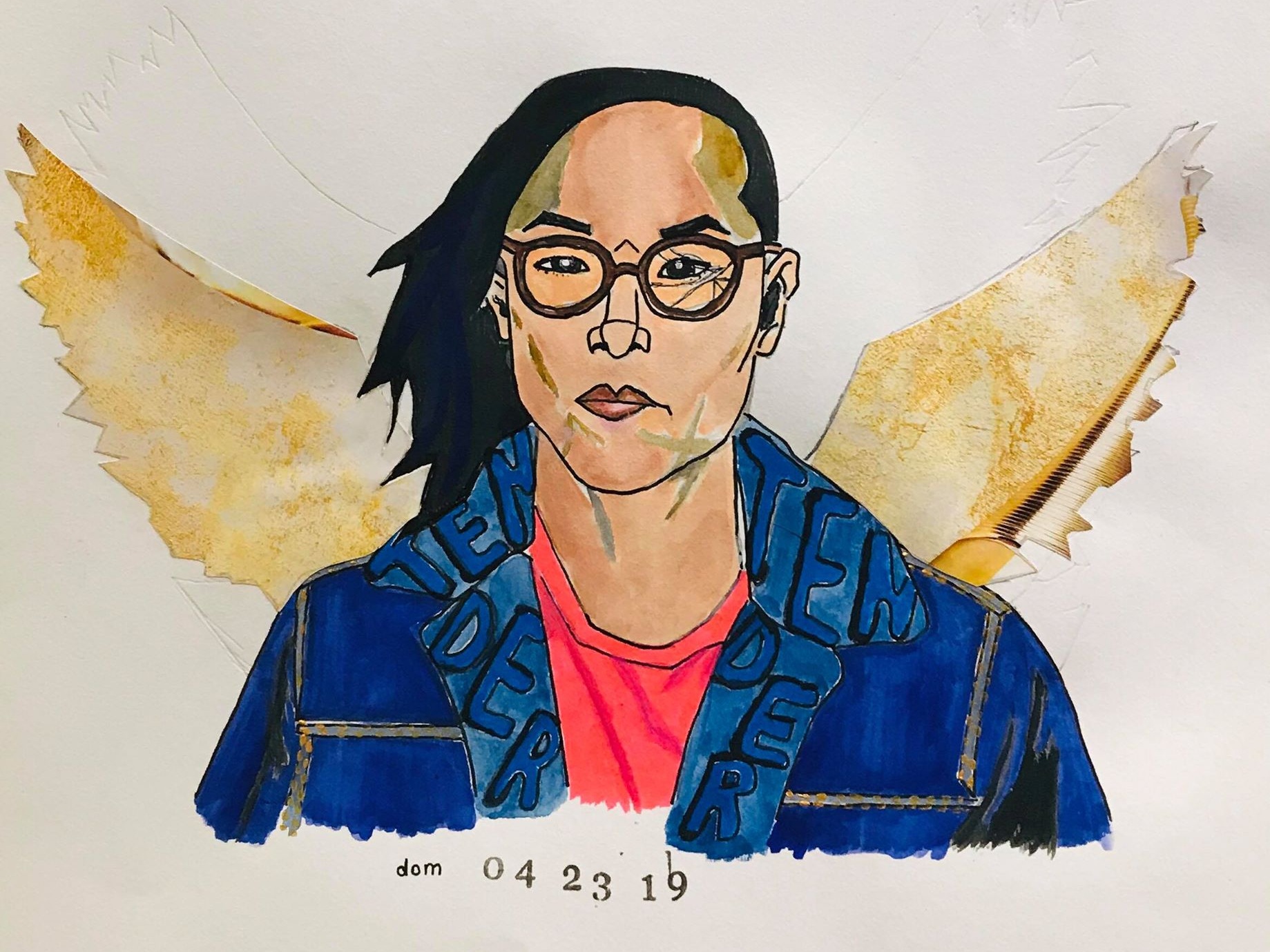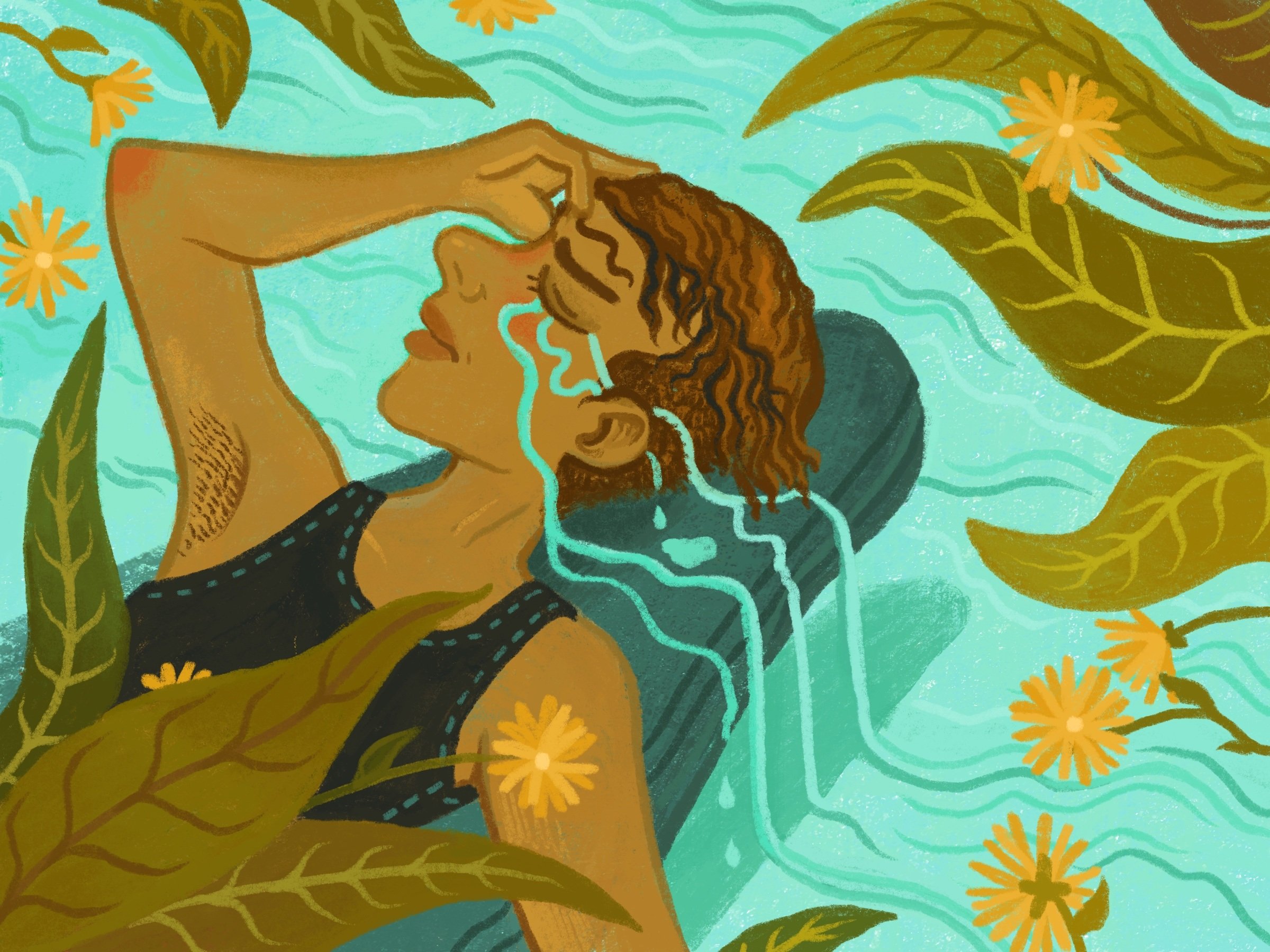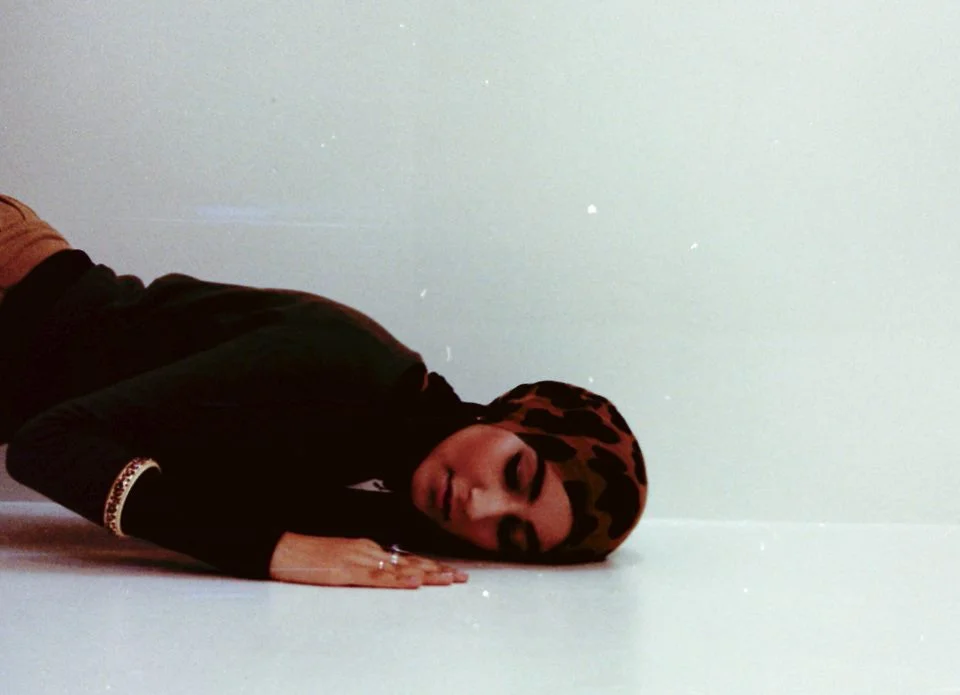Art by Inés Ixierda
CN: self-harm, suicidal thinking
In the Korean community, mental illness is a weakness. Although I grew up in a mixed race household mostly in the United States, Korean has always been a part of my identity. So, as the oldest child of a Korean immigrant parent, I was raised with a lot of expectations to succeed.
My mental illness felt like a disappointment. So I hid my suffering.
Countless nights were spent on my bathroom floor. I could hide my shame behind locked doors. As I struggled to make sense of myself, it felt like my lot in life was to suffer alone. Almost daily I would contemplate how I would die.
I was diagnosed at about 16 or 17 years old – with little to no information. Just medication.
However, not too long after starting medication, my uhma urged me to stop. Mental illness was weakness. But, taking medication meant you were succumbing to it – which was worse. Stop taking it. You can get better on your own.
So, I continued to deal with my mental illness the way that I had been dealing with it for so long – cutting. Self-harm is what ultimately landed me in the psychiatrist's office but cutting was the only thing seeming to heal me.
I was constantly exhausted pretending that I was always okay. Trying to prove to myself that maybe I wasn’t bipolar.
Instead, it haunted me while pursuing my undergraduate degree and followed me into law school. Years and years of unmedicated bipolar 2. Long, extended bouts of depression. Confusing and rage-filled hypomanic episodes. Always having to do better and be better, and most importantly hiding that I was suffering.
Until it was all too much.
I finally went back to medication, desperate for a solution. One day it clicked for me. The stigma of medication no longer served me. As perfect as I tried to be for my uhma, her keun ddahl, I had to accept that I needed it for me.
I would like to say that now that I am so much more open about my mental illness, that I am doing better. But, that could not be further from the truth. And that is the harsh reality of mental illness – it does not just go away.
I struggle to take my medication almost daily, even though I know it is important for my health. I still struggle with cutting – at almost thirty years old. I still feel shame and guilt about being mentally ill, especially when my depression gets particularly bad. But, my commitment to being open about my bipolar disorder has still been the most empowering thing for me.
We need community support to continue publishing!
Articles and artwork like these are only possible through your contributions. Please donate today to sustain the wellbeing of artists, writers, healers, and LGBTQ2IA+ people of color.
You can also support our team by picking up
a Rest for Resistance print zine, bag, or shirt.
Image description:
An illustration in black and white. On the right side, a femme person with hair swept above their head is crying, makeup running down their face. They are holding up one hand, which has painted nails and a couple rings. Text at the top-left says, "Is my mascara ok tho?"
About Inés Ixierda:
Inés Ixierda is an interdisciplinary visual artist and bruja in Oakland, California. her current work documents subversive medical narratives and trauma as meme. As an art witch, her focus concerns visual spellwork, femmecentric protection medicine and the weaponization of orthopedics. Inés uses handcraft, mark making, art rituals and graphic narratives to heal and hold her lived experience as a queer disabled woman of color.
About Paige Hardy:
Paige is a queer, mixed race Korean American scorpio living in Seattle with her best pup, Gogi.
















Whether you have a little privilege or a lot, it’s easy to feel helpless when considering the scope of systemic oppression. Growth is always possible, so once we accept the need to change, the only question is how.